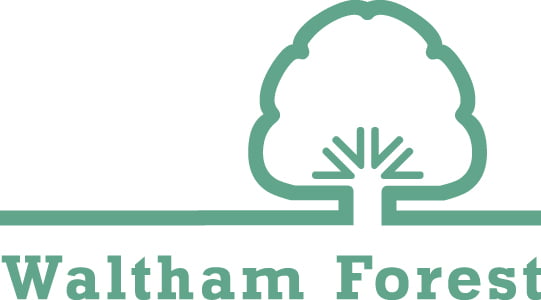- 30 people applied for the scheme and 16 loan offers were accepted, with an average value of £14,332.
- Upgrades will save each household an estimated £455 on fuel bills each year.
- In total, the pilot will deliver estimated carbon savings of 22 tonnes a year.
- Waltham Forest Council used our digital Homewise tool to help people identify upgrades, assess impact and enable tailored support.
Key points
Client profile
Waltham Forest Council is responsible for a range of services across its borough, which is home to around 278,400 people. As part of its work, the council runs projects to address climate change and improve residents’ quality of life, including making homes more energy efficient.
Challenge
Housing is Waltham Forest’s biggest source of CO2 emissions. Many of the borough’s properties are older buildings, and 90,000 homes have an Energy Performance Certificate (EPC) rating of C or lower.
Making these properties more energy efficient is essential for reducing people’s energy bills, tackling the climate emergency, and eliminating fuel poverty. Waltham Forest’s target is for 80% of homes to be upgraded to EPC B level (or equivalent) or higher by 2030.
Residents’ feedback shows that cost is the biggest barrier to people making energy efficient renovations to their homes and rental properties. In an online survey, 78% of people said financial support would help them carry out improvement projects.
Solution
To enable more people to carry out retrofit projects, Waltham Forest Council decided to pilot interest-free loans for home energy efficiency projects.
We won the contract to deliver the scheme, offering expert knowledge in energy efficiency, extensive experience of delivering grant and loan schemes, and innovative tools such as Homewise.
Our comprehensive support included:
- creating the application process
- defining the eligibility criteria
- drafting the terms and conditions
- managing and administering loans
As part of the decision-making process, applications could use a Homewise assessment to calculate the potential carbon savings and improvement in EPC rating.
Results
The project has helped reduce energy consumption and costs for residents, while decreasing carbon emissions in the borough.
Residents could request funding to install energy saving measures that were recommended either on their EPC or a Homewise report.
Thirty people applied for the pilot scheme and 16 loan offers were accepted, with an average value of £14,332. We anticipate that the resulting renovations will:
- improve households by at least one EPC banding
- deliver an average £455 annual fuel bill saving per household
- result in total annual carbon savings of 22 tonnes of carbon
The Homewise tool helped identify the most effective energy efficiency improvements for each property, and provide personalised action plans. This allowed us to tailor our support and maximise the impact of upgrades for residents.
Integrating Homewise into the loan application process added some accessibility and transparency. It provided applicants with a wider selection of measures, allowing them to explore more options appropriate for their situation.
